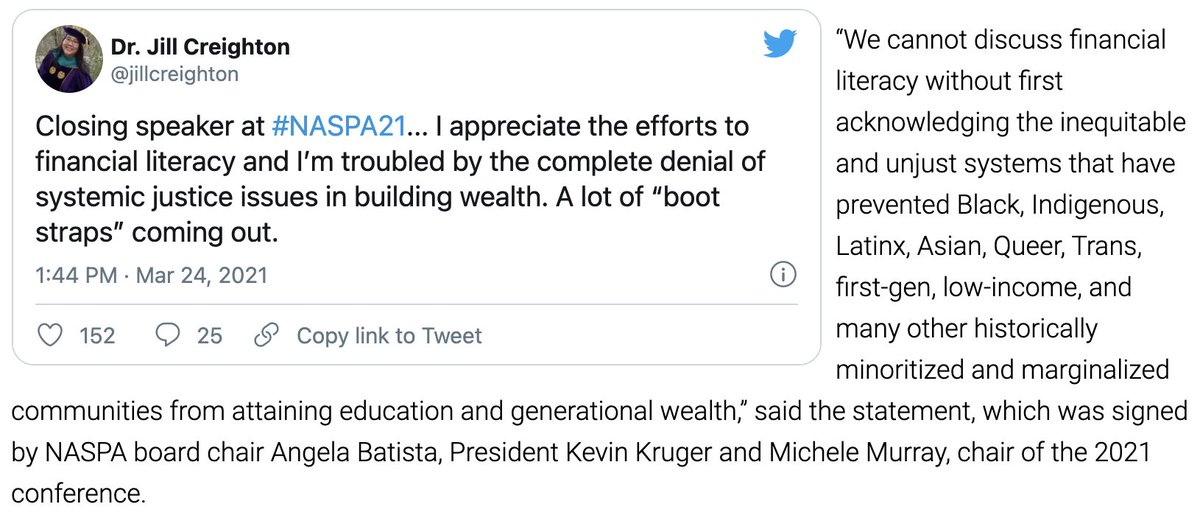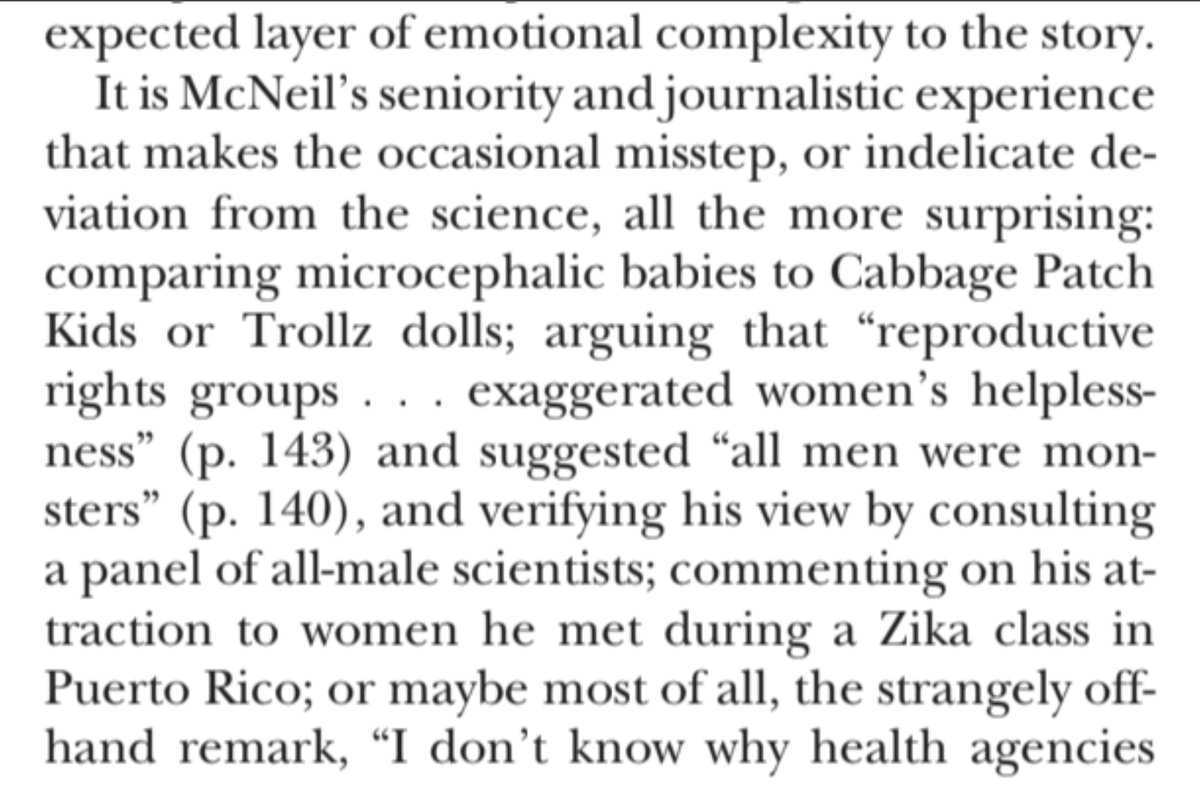
I don't want to debate whether this is "cancel culture" (thankfully, Orman is not in a position to be hurt by these loons), but it's absolutely effing nuts.
insidehighered.com/news/2021/03/2…
insidehighered.com/news/2021/03/2…
First, note the assumption that the org. cannot tolerate a speech that dissents from current political dogma. Discussing personal obstacles to wealth doesn't negate "systemic barriers." But no, *every speaker* has to follow the party line. This is a totalitarian mentality. 

Second, note the knee-jerk "marginalized groups" talking points. Asians, on average, are higher-income than other groups. Gays, on average, earn more than straight people. 

Note too this isn't just "more speech" (fine for anyone to criticize Orman's limitations!). No, her talk has to be *condemned* (it also won't be published).
Note too that this isn't targeting "reactionary white men." Orman is a pro-Obama Jewish lesbian who grew up poor.
Note too that this isn't targeting "reactionary white men." Orman is a pro-Obama Jewish lesbian who grew up poor.
My point isn't that Orman is a victim. She certainly isn't. The victim is mainstream American culture, which is infested with a toxic totalitarian mentality.
/FIN
/FIN
(Or at least working-class. Not sure about the "poor" part.)
• • •
Missing some Tweet in this thread? You can try to
force a refresh













